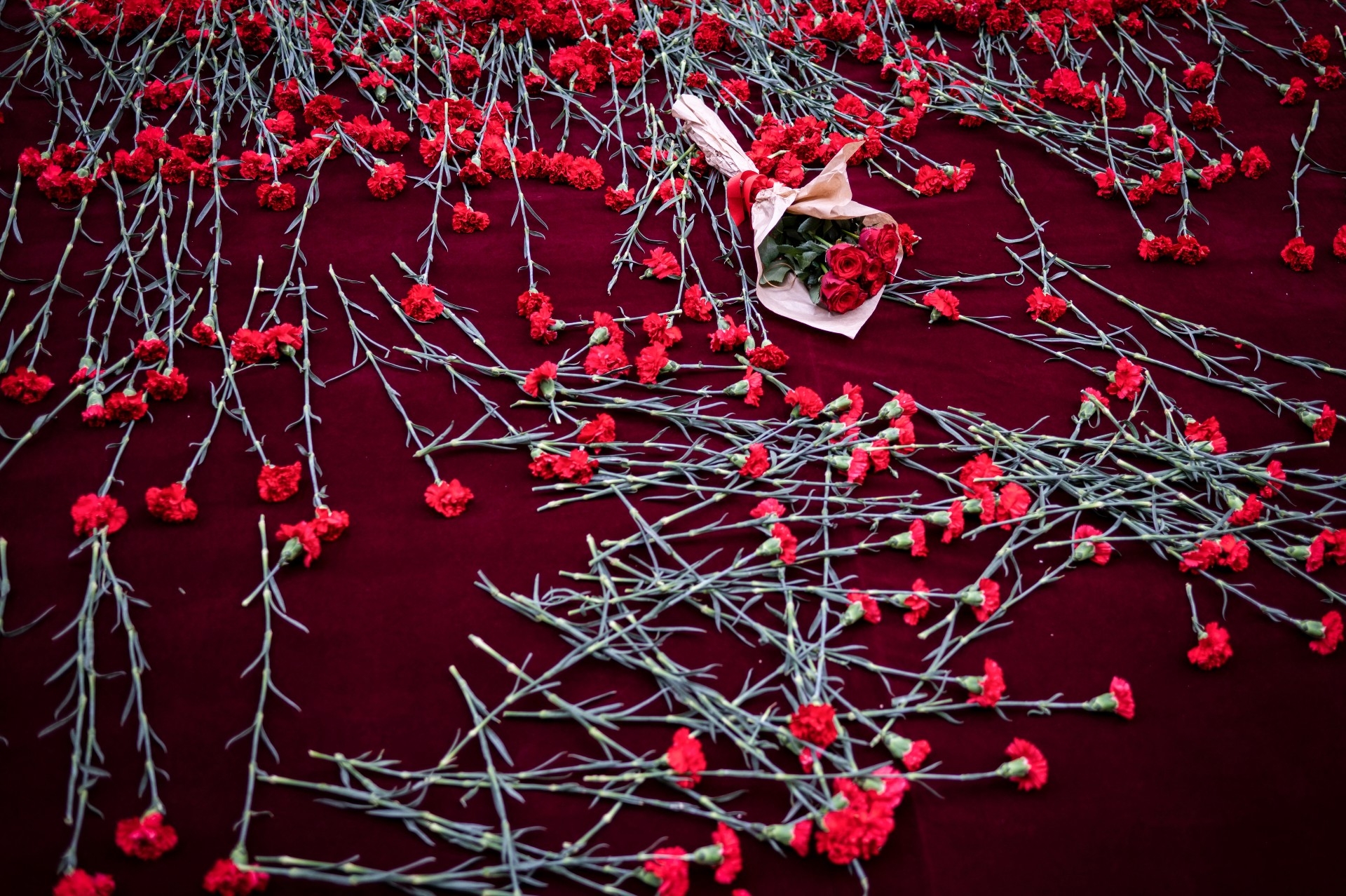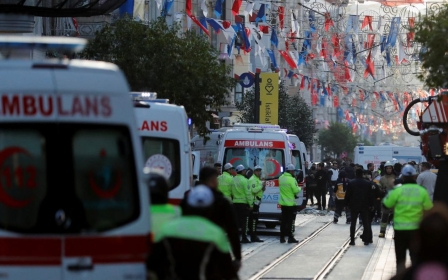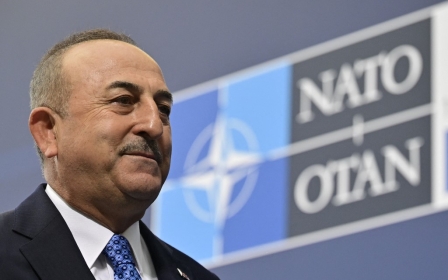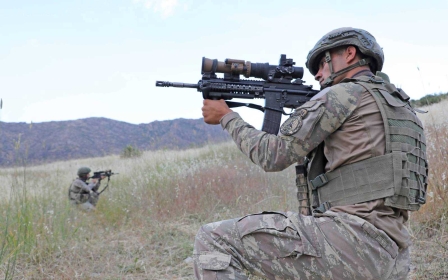Istanbul bombing: Turkey blames deadly blast on PKK, arrests 46 people

Turkey's interior minister has accused the outlawed Kurdistan Workers' Party (PKK) armed group of responsibility for a bombing in a busy Istanbul street that killed six people and wounded scores.
Istanbul police said 46 people had been arrested over Sunday's attack, including a woman suspected of having planted the bomb.
The police said Ahlam Albashir was a Syrian national and that she had confessed to being trained by the PKK.
The PKK on Monday denied responsibility for the attack and no group has so far claimed it.
In a statement on its website, the PKK said: "It is out of [the] question for us to target civilians in any way."
New MEE newsletter: Jerusalem Dispatch
Sign up to get the latest insights and analysis on Israel-Palestine, alongside Turkey Unpacked and other MEE newsletters
Interior Minister Suleyman Soylu said the order for the attack on Istiklal Avenue was given in Kobane, a city in northern Syria, where Turkish forces have carried out operations against the Syrian Kurdish YPG militia in recent years.
"According to our findings, the PKK terrorist organisation is responsible," said Soylu.
Turkey views the YPG as an extension of the PKK, with which it has been locked in a deadly war for four decades.
The Kurdish-led Syrian Democratic Forces (SDF), of the which the YPG are the main component, also denied on Monday any role in the attack.
"Our forces have nothing to do with the Istanbul bombing," said Mazloum Abdi, the chief commander of the US-allied SDF.
Soylu said Albashir had passed through Afrin, another region in northern Syria, on her way to Istanbul.
Following his initial statement, Soylu said on Monday morning in a live television interview from Istiklal Avenue that if Albashir had not been arrested she could have escaped to Greece.
The minister also said that authorities had a phone tap showing that the PKK had ordered the killing of Albashir after the attack and that authorities had arrested the person sent to kill her.
Despite Soylu's statements, a senior Turkish official told Reuters that authorities were not ruling out Islamic State ties to the attack.
The attack came as Ankara has intensified its drone attacks and operations against the PKK leadership in Syria and Iraq, killing several people, from mid-level officials to people in the leadership, in recent months.
There are also multiple Turkish military operations in northern Iraq, which have pushed the PKK towards the south.
Facial recognition software
Six Turkish citizens, two members each of three families, were killed in Sunday's attack.
Television news reports showed images of a person, who appeared to be a woman, leaving a package below a raised flower bed on the historic Istiklal Avenue, a popular spot for shoppers and tourists with a tramline running its length.
Footage released by the Istanbul police showed that the suspect had a gun and some ammunition at her residence, along with a considerable amount of cash and some gold.
Police were reported to have tracked Albashir through facial recognition software and GPS data. They said that TNT had been used to make the bomb.
Fifty people were discharged from hospital after Sunday's attack, which sparked concerns that Turkey could be hit with more bombings and attacks, like the series that it suffered between mid-2015 and 2017.
Of those wounded on Sunday, two of the five people being treated in intensive care were in a critical condition, the Istanbul governor's office said. They were among the 31 wounded still in hospital.
Hundreds of people fled the avenue after the blast on Sunday, as ambulances and police raced in. The area, in the Beyoglu district of Turkey's largest city, had been crowded as usual at the weekend.
In a statement on Sunday, the pro-Kurdish People’s Democratic Party (HDP) said it was saddened by the explosion and the loss of life.
Using stronger language on Twitter, the imprisoned former HDP chairman Selahattin Demirtas, seen as the natural leader of the party, said: “I condemn the act of terrorism that openly targets innocent civilians on Istiklal Street.
"I wish God's mercy on those who lost their lives, my condolences to their relatives, and a speedy recovery to the injured. Regardless of the purpose or justification, any attack targeting civilians is terrorism. We never accept.”
US criticised
Condemnations of the attack and condolences for the victims poured in from several countries including the United States, the European Union, Egypt, Ukraine and Greece.
Turkish authorities linked support for the YPG by Washington and others to the blast.
The presidency's communications director, Fahrettin Altun, said such attacks "are direct and indirect results of the support some countries give to terrorist organisations".
Soylu likened the US condolences to "the murderer arriving as one of the first at the scene of the crime".
The PKK has led an insurgency against the Turkish state since 1984 and more than 40,000 people have been killed in the conflict. It is considered a terrorist organisation by Turkey, the European Union and the US.
Middle East Eye delivers independent and unrivalled coverage and analysis of the Middle East, North Africa and beyond. To learn more about republishing this content and the associated fees, please fill out this form. More about MEE can be found here.




